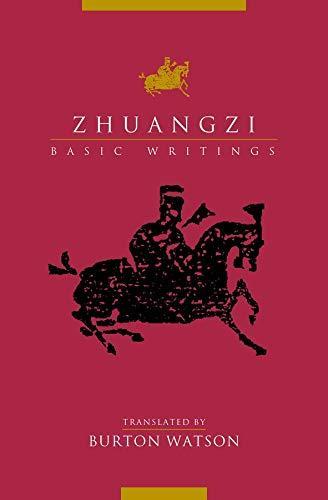English language
Published March 5, 2003 by Columbia University Press.

English language
Published March 5, 2003 by Columbia University Press.
The Zhuangzi (Chinese: 莊子, historically romanized Chuang Tzŭ) is an ancient Chinese text from the late Warring States period (476–221 BC) which contains stories and anecdotes that exemplify the carefree nature of the ideal Taoist sage. Named for its traditional author, "Master Zhuang" (Zhuangzi), the Zhuangzi is one of the two foundational texts of Taoism, along with the Tao Te Ching. The Zhuangzi consists of a large collection of anecdotes, allegories, parables, and fables, which are often humorous or irreverent. Its main themes are of spontaneity in action and of freedom from the human world and its conventions. The fables and anecdotes in the text attempt to illustrate the falseness of human distinctions between good and bad, large and small, life and death, and human and nature. While other ancient Chinese philosophers focused on moral and personal duty, Zhuangzi promoted carefree wandering and becoming one with "the Way" (Dào 道) …
The Zhuangzi (Chinese: 莊子, historically romanized Chuang Tzŭ) is an ancient Chinese text from the late Warring States period (476–221 BC) which contains stories and anecdotes that exemplify the carefree nature of the ideal Taoist sage. Named for its traditional author, "Master Zhuang" (Zhuangzi), the Zhuangzi is one of the two foundational texts of Taoism, along with the Tao Te Ching. The Zhuangzi consists of a large collection of anecdotes, allegories, parables, and fables, which are often humorous or irreverent. Its main themes are of spontaneity in action and of freedom from the human world and its conventions. The fables and anecdotes in the text attempt to illustrate the falseness of human distinctions between good and bad, large and small, life and death, and human and nature. While other ancient Chinese philosophers focused on moral and personal duty, Zhuangzi promoted carefree wandering and becoming one with "the Way" (Dào 道) by following nature. Though primarily known as a philosophical work, the Zhuangzi is regarded as one of the greatest literary works in Chinese history, and has been called "the most important pre-Qin text for the study of Chinese literature". A masterpiece of both philosophical and literary skill, it has significantly influenced major Chinese writers and poets for more than 2000 years from the Han dynasty (206 BC–AD 220) to the present.